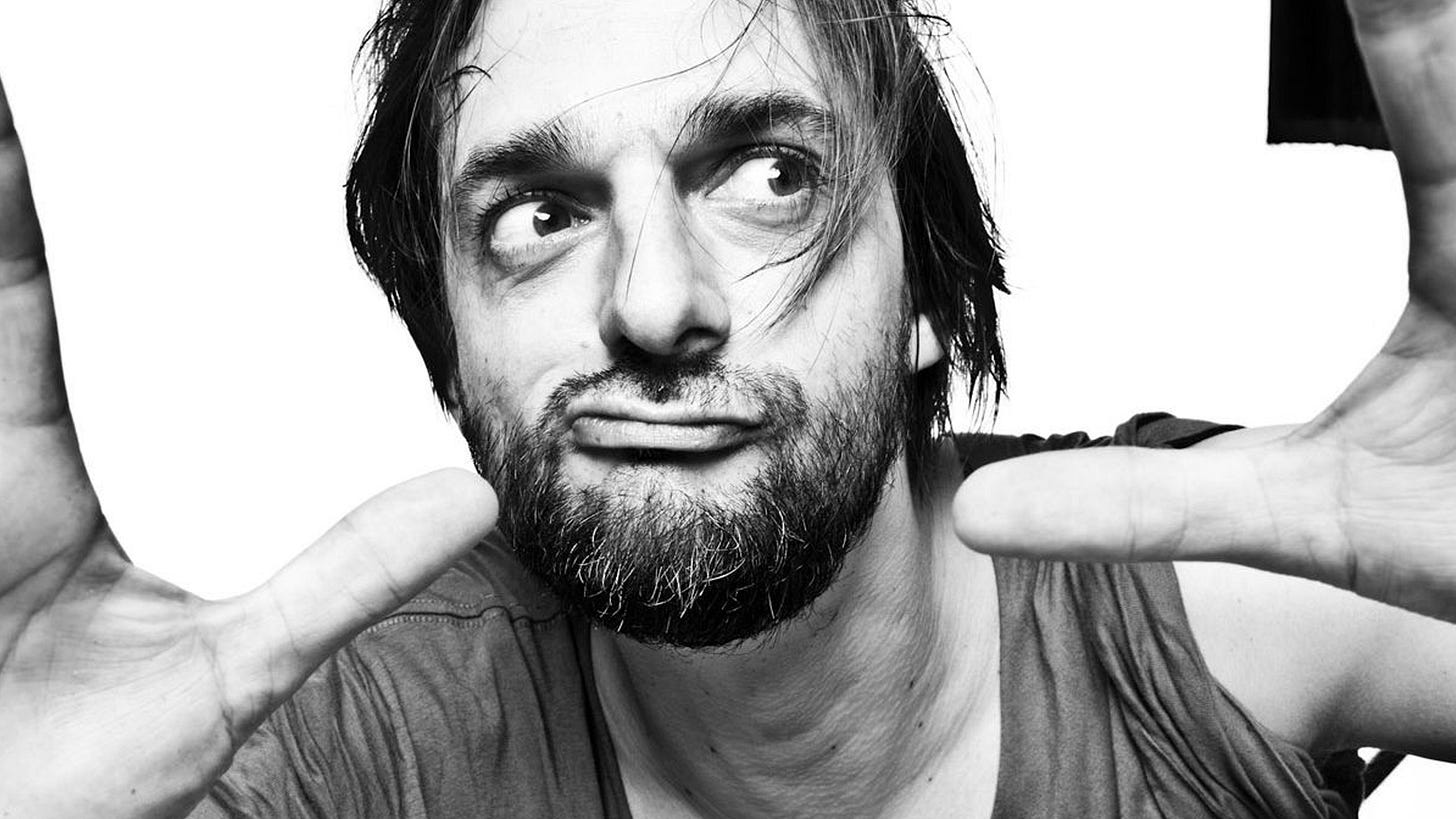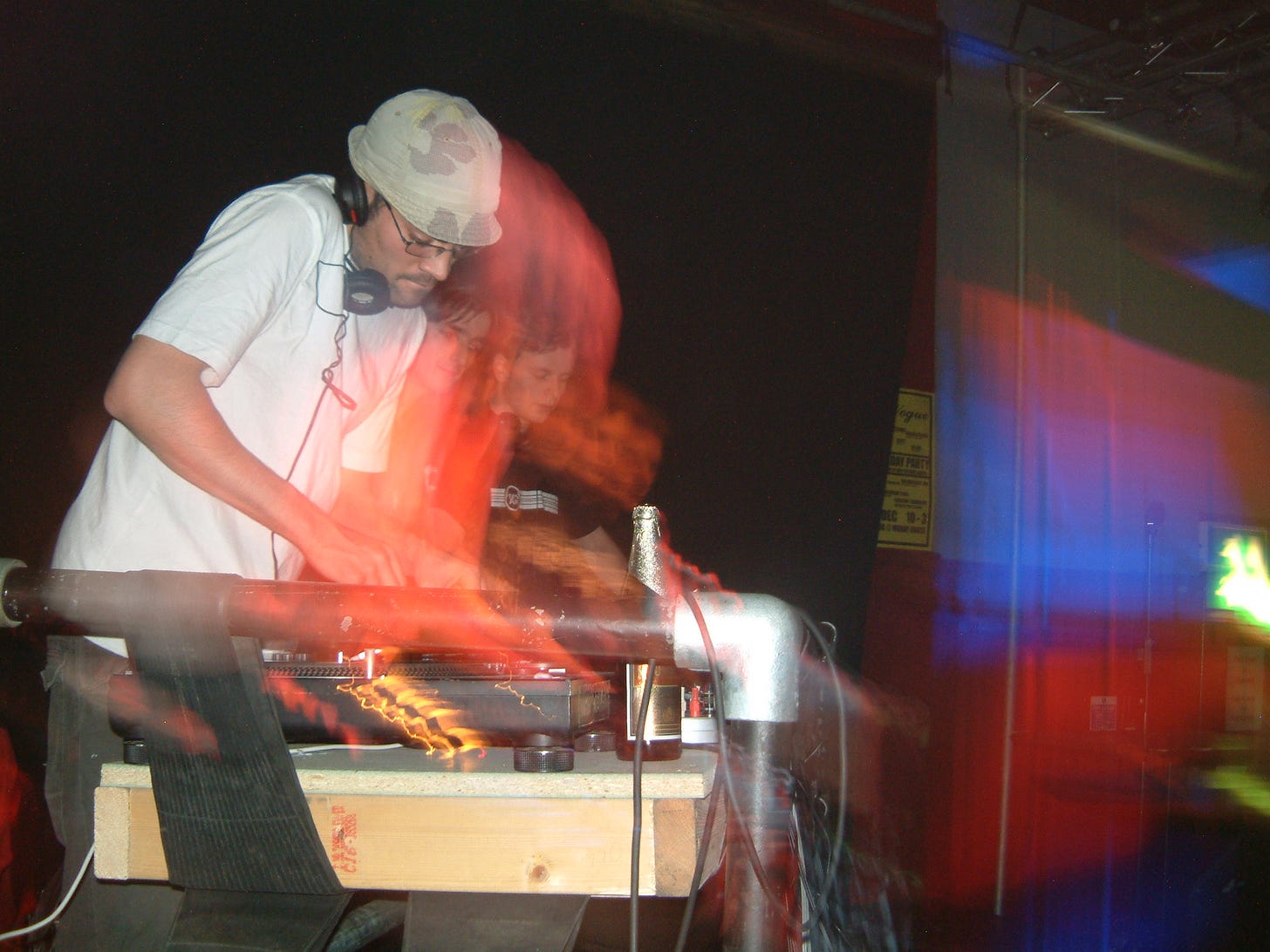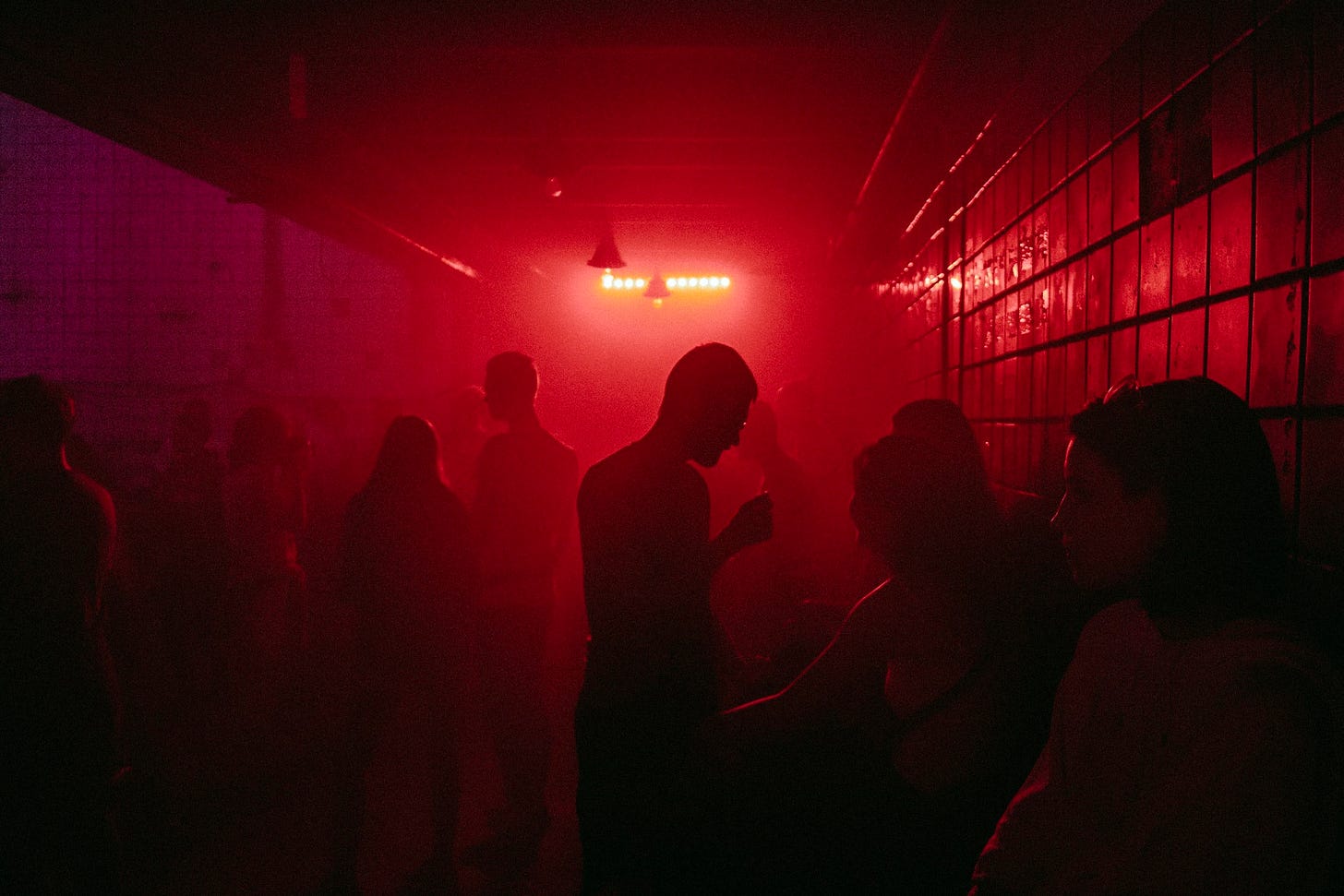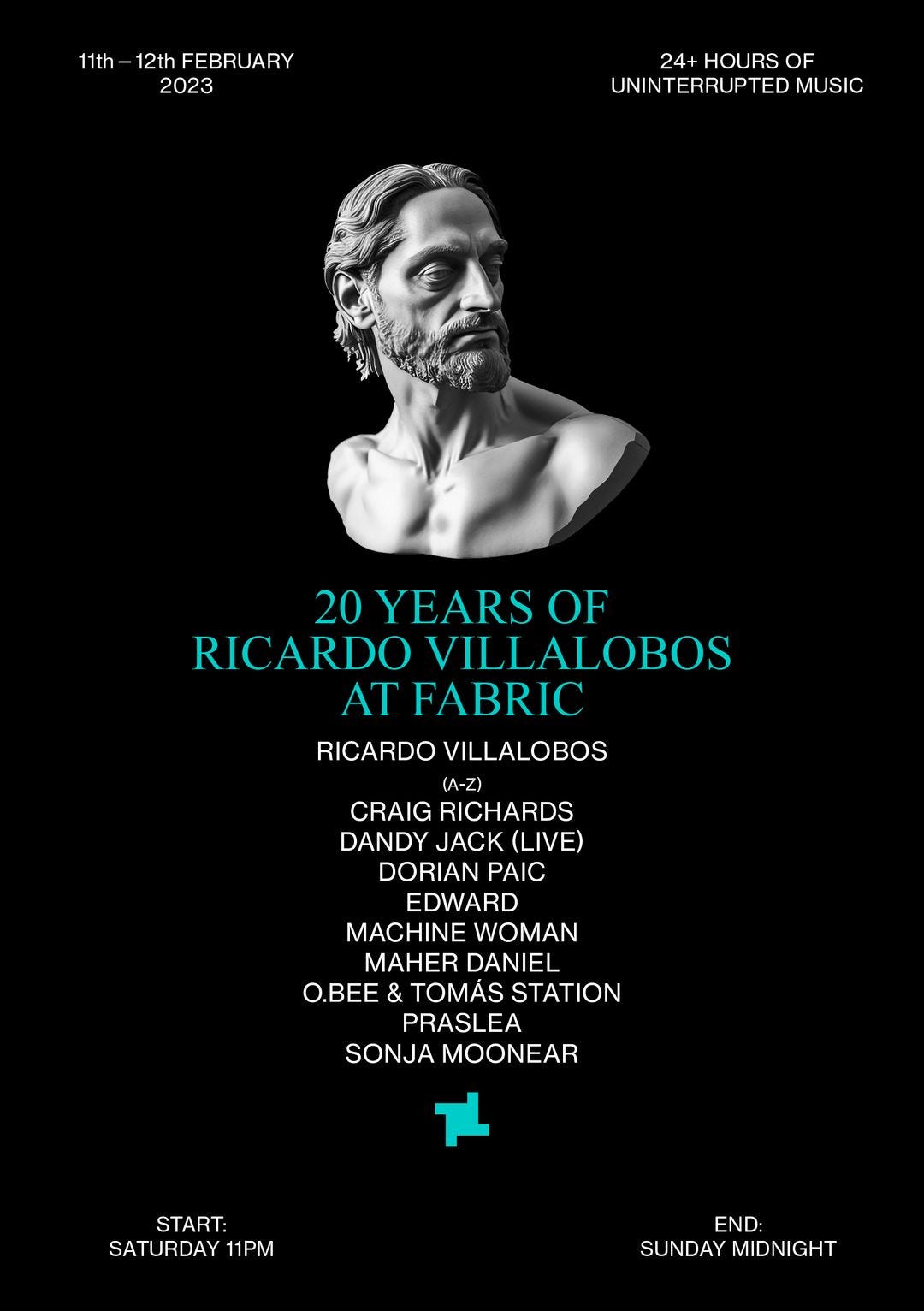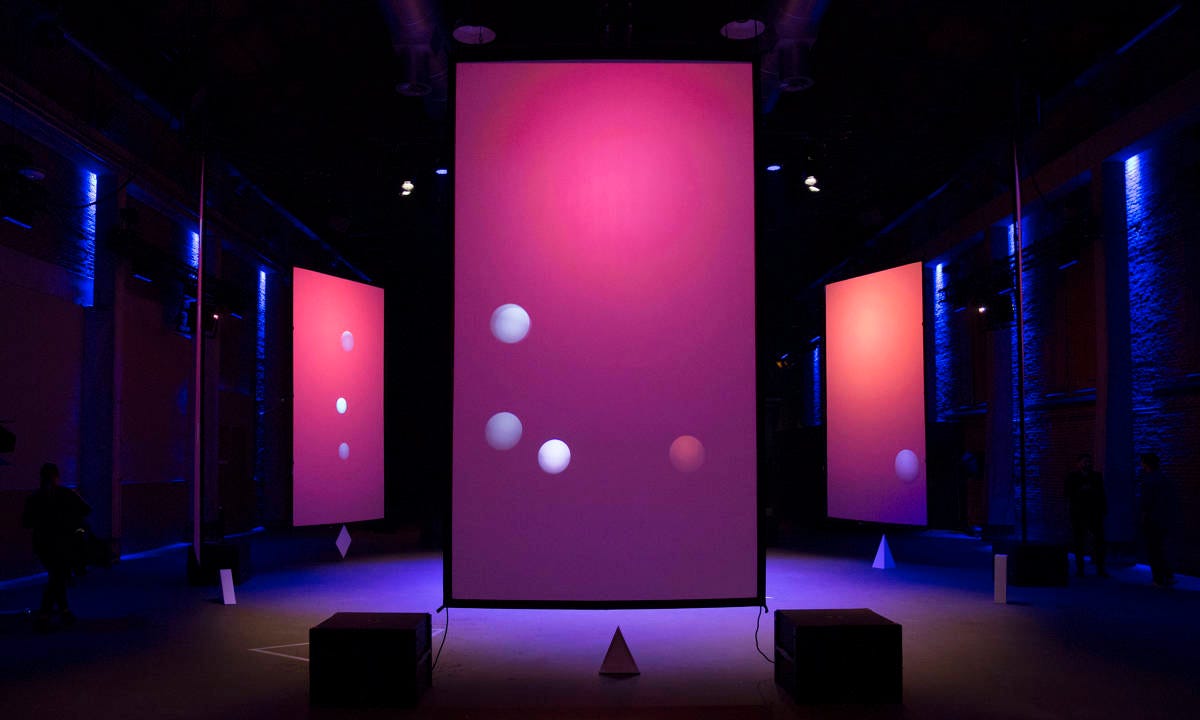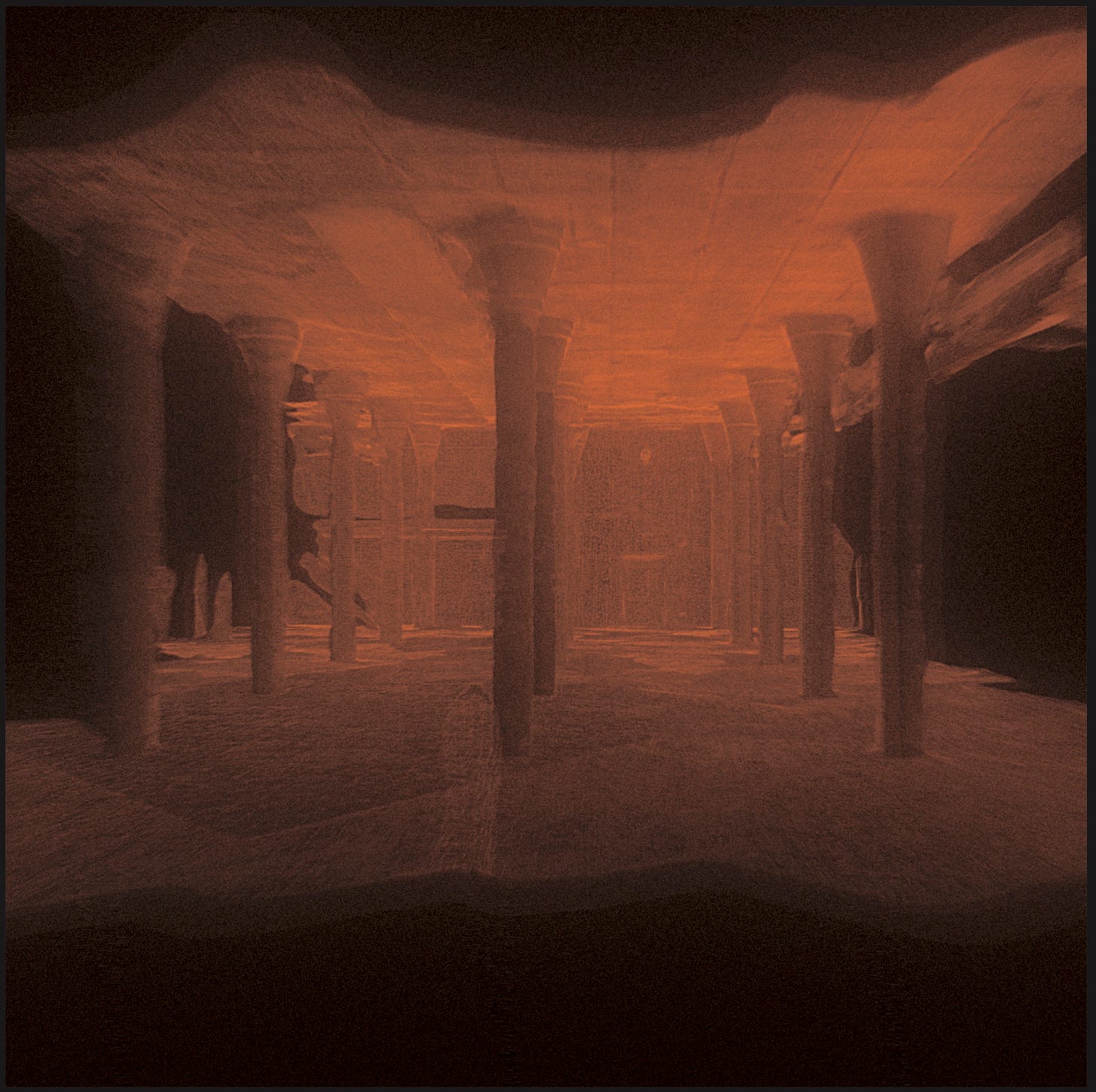Ricardo Villalobos sang on my 21st birthday (and we danced forever)
Generative music, song formats, the true value of the clubbing experience, neuroplasticity, the four D's of rave, Ricardo Villalobos, Fela Kuti, Brian Eno and the next release on A State Of Flo
It’s my birthday today. Exactly 21 years ago, I celebrated my 21st. At that time, I was a psychology student in Edinburgh and ran a monthly club night called Pogo Vogue with a few friends. It was in the early 2000’s and the most exciting sounds in clubland were a mishmash of electroclash, centered around the likes of Erol Alkan’s Trash, Trevor Jackson’s Output records, Miss Kittin, International Deejay Gigolos and Optimo (Espacio); minimal/micro house from Kompakt records, Akufen, Baby Ford, Matthew Herbert; mid-period Warp and Ninja Tune records; and folk/electronica crossover (folktronica!) from Amon Tobin, Four Tet, Manitoba (now Caribou/Daphni), the latter three of whom all played at our early parties. These genres all aged pretty quickly and those names mostly moved on with the times, but as ever, there was some amazing music that came out of that period that continues to reside in my hazy memory.
Coincidentally, one of our Pogo Vogue dates happened to be on my 21st birthday and we booked Ricardo Villalobos to play. At the time he was a tiny name, gaining some attention but with little sign that he would become one of the biggest DJs in the world. At Pogo Vogue, it was the first time he’d ever played in the UK - the next night he played at Fabric for the first time and his legendary residency at that club began, where it continues to today.
I have fantastic memories of that night, with the pre-club dinner featuring a table of my wide-eyed best friends and big Ricardo, as beguiling a character as you might imagine. Everyone - including a slightly bemused Ricardo - sang Happy Birthday and we headed to the club, where we were treated to a three hour set of time-bending polyrhythmic club music, culminating in the first time Ricardo ever played his seminal minimal track ‘Easy Lee’ from the now classic and recently re-issued ‘Alcachofa’ album (and ending with Ricardo playing my first ever production and smiles all round).
I have followed Ricardo’s career closely ever since, ever impressed by the revere in which he is held in the global club scene, his reputation as a party animal but also his forays into more experimental sounds, modular synthesis, the high art music of ECM, as well as continuing to release groundbreaking dance music and remixes, with tracks clocking an average of 15 minutes plus.
Villalobos and the Four D’s - Dance, Drugs, Deprivation and Drums
Ricardo rarely gives interviews but I’ve found one he did with Resident Advisor particularly enlightening. In it he explains what he thinks about the dancefloor - that it is a place where we can return to our child-like former selves and by doing so exist entirely in the moment, lost within a perpetual groove and immersed by dancefloor sonics. This is the true value of the club experience - to have the opportunity to be ‘lost in that moment’, cocooned by sound waves, where the notion of time often melts away.
At best, it allows us to access a neuro-plastic state of consciousness - our flow state - where our dopaminergic systems give us a rush and oxytocin levels connect us to the people around us, whether on drugs or sober. Our brain waves give rise to a more creative state of mind and we feel infinitely more prosocial - ‘at one’ with the dancefloor and the strangers who happen to be in it. There is true therapeutic value within this experience, which is often dismissed within the cultural milieu of ‘getting wasted’, and although Ricardo gets maligned as pushing some of the prosocial aka ‘party’ bits too far, it strikes me that he truly understands the human-need to return to this state and the benefits it can bring.
Dr. Martha Newsom has studied the value of the rave experiences, citing the ‘Four D’s’ - Dance, Drugs, (Sleep) Deprivation and Drums as being four important variables that in combination can lead to this more prosocial experience both during and post-the clubbing experience. Her research points to the longer term benefit to society that is delivered by these experiences by individuals.
Anyway, back to Ricardo. I love that he famously eschews social media and clearly really dislikes the current state of affairs where these sacred dancefloor moments are filmed and uploaded straight onto the internet. The essence of the in-group communal dancefloor experience is immediately lost when the outside world has capacity to view and to judge, thereby creating a barrier to what makes clubbing a freeing experience. This connection with the outside world breaks the bond and common experience that you share with others on the dancefloor, which is such a shame.
Music with no start and end
Aside from his dancefloor antics, Ricardo has pioneered music that plays around with the concept of time. His productions have got longer and longer as he’s got older, with most tracks now clocking in over 15 mins (dance music tracks are typically around 6-7 mins and classic pop music 2-3mins). His Fizheuer Zieheuer famously track clocks in at 37 mins with little more than a trumpet sample and simple hypnotic rhythm. In his Resident Advisor interview he asked ‘if there is a good groove, why can’t songs just last forever?’
This idea has stuck with me and consequently I have often experimented with longer songs - Notably on my Rainfall On Red Earth and Die Bailando tracks. I find producing in this way is creatively freeing and perhaps not more commonplace due to the way the limitations of the format have defined the length of songs - vinyl can run for around 15 mins per side, a CD is 70 mins. Allowing the songs to run and run gives the agency to the listener (or DJ) to decide how long they are audible for and therefore potentially forms a different relationship between artist and listener. The song becomes more of a collaboration - the listener can decide when to skip, the DJ can decide when to mix in and out. This is completely contrary to the pop tradition of the artist force feeding the ’best bits’ of their work into a compressed 2 min radio edit.
Fela Kuti used to play all night in the Shrine in Lagos Nigeria. His band would play continuously for hours with Fela dipping in and out of songs where appropriate, singing or otherwise. His recorded music often runs for over 20 mins per track, most likely as a result of them being influenced directly from those Shrine sets. These are mini-albums within one piece of music, which transport you to a time and place, exploring a musical idea to its fullest potential.
Music that continually remakes itself
Generative Music has potential to take this concept of collaboration a step further and with the rise of AI, seems likely to make more of an impact in the near future. Generative is a way of describing music that can ‘self-generate’ using a set of rules and therefore run and run forever, evolving or adapting by itself or via certain inputs. Although it's been around for the last century, Brian Eno has been one recent pioneer, launching a range of apps including Scape and Bloom that delivered a generative ambient listening experiences, and proven to be very popular.
Eno himself has been known to say that ‘In the Future, all music will be generative’ and perhaps now is the time for this to start to become a reality.
Being able to adjust the time that a song plays for, gives it an elasticity that completely changes how it is experienced by the listener. It is the same but different - similar to how we experience listening to the natural world where the elements are largely the same but no two moments of a soundscape are ever exactly identical. I think there are lot’s of merits to this approach and am excited by the potential of it within music production as a means of breaking the barrier between artist and listener. In the same way that Ricardo’s long productions give the option for listeners/DJs to have agency over their experience of the song, generative music has the potential to equalise the dichotomy between artist and listener, and perhaps moves us towards a richer, more personalised musical paradigm.
I’ve been experimenting with generative technologies over at Swell Studio, and we’re now seeing some really promising results within the music therapy space. Our next release on A State Of Flo - Genius Loci - will utilise this technology and give listeners a chance to listen to various versions of a song that are elastic to time, and never totally the same on each listen.
More on this to come very soon!



